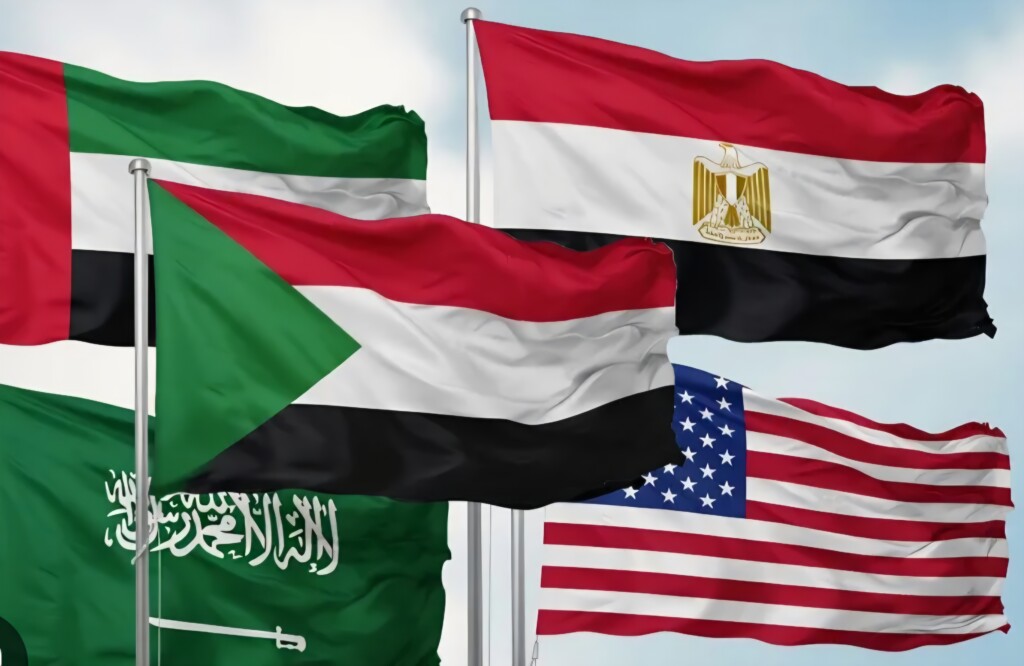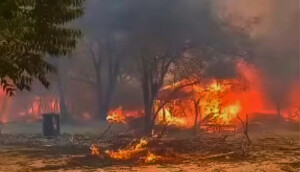US indirect talks between Sudan army and RSF ahead of ceasefire negotiations

Flags of the Sudan Quartet (File image)
Indirect preliminary talks between the Sudanese Armed Forces (SAF) and the paramilitary Rapid Support Forces (RSF) began in Washington D.C. last week, marking a significant step towards formal ceasefire negotiations and efforts to stabilise the country after more than a year and a half of war.
A US State Department official confirmed that the two-day meetings in Washington are part of ongoing preparations for official peace talks aimed at arranging both military and political frameworks for Sudan’s post-war transition.
Journalist Shawgi Abdelazim told Radio Dabanga that the Washington meetings represent “an advanced step in the negotiation process,” building on earlier high-level efforts, including a meeting between US President Donald Trump’s adviser for Arab and African Affairs, Massad Boulos, and SAF leader Lt Gen Abdelfattah El Burhan in Switzerland earlier this year.
Abdelazim explained that the current talks are indirect, with each delegation meeting separately with US officials under the supervision of the US Deputy Secretary of State. “The purpose of this format is to bridge the gap between the two sides before they sit together for direct negotiations,” he said.
The SAF delegation includes senior officers from military intelligence and security, while the RSF team comprises leading commanders within the paramilitary force. According to Abdelazim, El Burhan personally oversaw the preparatory phase and took part in early coordination meetings before his delegation travelled to Washington.
Negotiations focus
The discussions reportedly focus on three main issues: a ceasefire and military truce, transitional security arrangements between the SAF and RSF, and the post-war status of both forces. Abdelazim noted that the delegations represent the two warring factions, not the Sudanese government, as the Foreign Ministry was not officially informed of the sessions.
“These are military-to-military talks,” he said, adding that Sudan’s Ambassador to Washington, Omer El Siddig, has been excluded from the process.
Abdelazim described the Washington meetings as part of “a high-level preparatory phase” for official peace negotiations, stressing that both sides prefer to address the most contentious issues in advance to avoid failure later.
He added that coordination with the African Union is ongoing, while the Quartet, comprising the United States, Saudi Arabia, Egypt, and the United Arab Emirates continues to play a central role through its platforms in Washington and Jeddah.
“These talks are a serious attempt by the military parties to reach common ground before entering official negotiations,” Abdelazim said. “They are exploring solutions to the core crises to ensure that when formal talks begin, there’s a real chance of success.”
The renewed diplomatic momentum follows the Quartet’s meeting on the sidelines of the UN’s 80th session of the General Assembly in New York on September 24, attended by the foreign ministers of the four member countries and the US presidential advisor Boulos.











 and then
and then